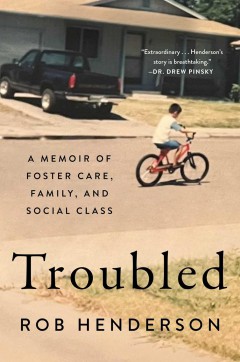 |
On as stable family life:
As someone who never really had one, maybe I am the least qualified person to defend the importance of family. But as someone with more education than I ever expected to receive, maybe I’m more qualified to say we give education more importance than we should.
[…]
I’ve come to understand that a warm and loving family is worth infinitely more than the money or accomplishments I hoped might compensate for them.
[…]
Unstable environments and unreliable caregivers aren’t bad for children because they reduce their future odds of getting into college or making a living; they are bad because the children enduring them experience pain — pain that etches itself into their brains and bodies and propels them to do things in the pursuit of relief that often inflict even more harm.
[…]
In one of my classes at Yale, I learned that eighteen out of the twenty students were raised by both of their birth parents. That stunned me, because none of the kids I knew growing up was raised by both of their parents.
[…]
Even though public assistance in Denmark is widely available and university education is free, disparities in test scores and educational mobility between children raised in wealthy versus low-income families are virtually identical to the US.
[…]
Even when you present opportunities to deprived kids, many of them will decline them on purpose because, after years of maltreatment, they often have little desire to improve their lives.
[…]
An important clue comes from a widely cited 2012 paper in the scientific journal Developmental Psychology. A team of psychologists found that compared to children raised in wealthier families, children raised in lower-income families are no more likely to engage in risky behaviors or commit crimes as adults. However, compared with children raised in stable environments, children raised in unstable environments are significantly more likely to engage in harmful or destructive behaviors later in life. Holding family income constant, the researchers found that the association between childhood instability and harmful behaviors in adulthood remained significant.
[…]
I scored well into the top 1 percent of the most unstable childhoods in the US.
[…]
Given the choice, I would swap my position in the top 1 percent of educational attainment to have never been in the top 1 percent of childhood instability.
[…]
I’ve come to believe that upward social mobility shouldn’t be our priority as a society. Rather, upward mobility should be the side effect of far more important things: family, stability, and emotional security for children. Even if upward mobility were the primary goal, a safe and secure family would help achieve it more than anything else.